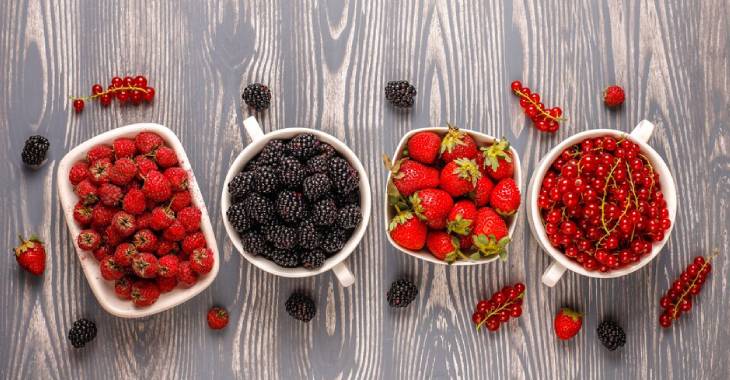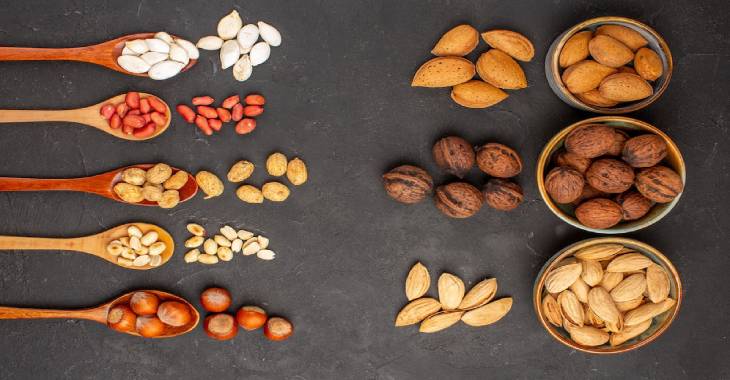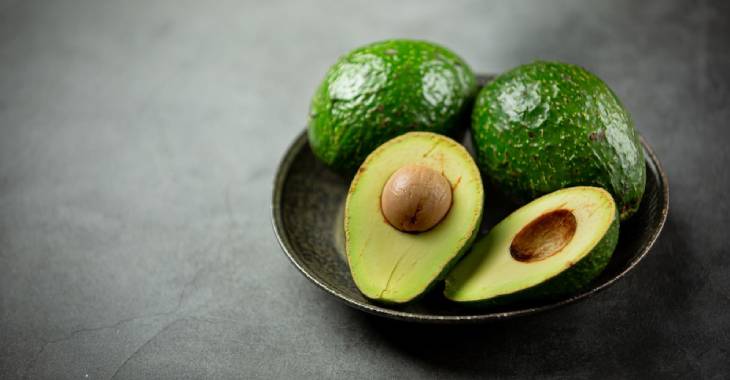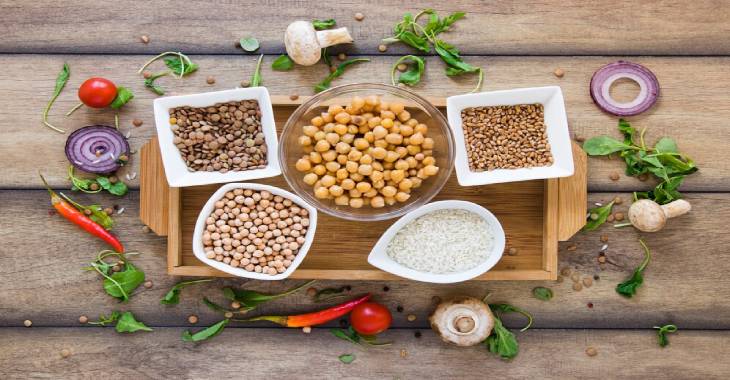A healthy diet is one of the most important factors in maintaining overall wellness. It is widely accepted that the foods we eat impact our health in profound ways, from boosting our energy levels to reducing the risk of chronic diseases. Incorporating nutrient-dense foods into your daily meals is a simple and effective way to ensure that your body is getting the vitamins, minerals, antioxidants, and other vital nutrients it needs.
In this article, we will explore the top 10 healthiest foods you should include in your diet for optimal health.
1. Leafy Greens (Spinach, Kale, Swiss Chard)

Leafy greens are often considered the gold standard in healthy eating. These vegetables are rich in vitamins, minerals, and fiber while being low in calories, making them perfect for anyone looking to improve their health without overindulging. Among the most popular leafy greens are spinach, kale, Swiss chard, and arugula.
Leafy greens are an excellent source of vitamin K, which is important for bone health and blood clotting. They are also packed with vitamin A, which supports eye health, and vitamin C, which strengthens the immune system. Additionally, the fiber content in leafy greens aids in digestion, helps regulate blood sugar levels, and supports heart health.
Nutritional Highlights: High in fiber, vitamins A, C, K, and calcium; rich in antioxidants like lutein and zeaxanthin, which support eye health.
2. Berries (Blueberries, Strawberries, Raspberries)

Berries are small in size but big on health benefits. Blueberries, strawberries, raspberries, and blackberries are among the best fruits you can eat for overall wellness. Rich in antioxidants, especially anthocyanins, berries help reduce oxidative stress in the body and protect cells from damage.
The high vitamin C content in berries boosts immune health and aids in collagen production for healthy skin. Berries are also high in fiber, which promotes digestion and supports heart health by lowering cholesterol levels. Studies suggest that regular consumption of berries may improve cognitive function, reduce inflammation, and lower the risk of chronic diseases such as cardiovascular disease and diabetes.
Nutritional Highlights: Rich in antioxidants, fiber, and vitamin C; anti-inflammatory properties.
3. Fatty Fish (Salmon, Mackerel, Sardines)

Fatty fish, such as salmon, mackerel, sardines, and anchovies, are loaded with omega-3 fatty acids, which are essential for heart and brain health. Omega-3s are known to reduce inflammation, lower triglyceride levels, and support cognitive function, making fatty fish an excellent choice for those looking to promote cardiovascular and neurological health.
In addition to omega-3s, fatty fish provide a good source of protein, vitamin D, and selenium. Vitamin D is particularly important for bone health, and selenium acts as an antioxidant, protecting cells from damage.
Nutritional Highlights: High in omega-3 fatty acids, protein, vitamin D, and selenium; supports heart and brain health.
4. Nuts and Seeds (Almonds, Chia Seeds, Walnuts)

Nuts and seeds are nutrient-dense foods packed with healthy fats, protein, and fiber. Almonds, walnuts, chia seeds, and flaxseeds are among the healthiest options. These foods are rich in monounsaturated and polyunsaturated fats, which help lower bad cholesterol (LDL) levels and reduce the risk of heart disease.
Nuts and seeds also contain significant amounts of vitamins and minerals, including vitamin E (an antioxidant), magnesium (important for muscle and nerve function), and zinc (which supports immune function). Eating a small handful of nuts or adding seeds to your meals can provide a satiating snack, helping to manage hunger and support weight management.
Nutritional Highlights: Rich in healthy fats, protein, fiber, magnesium, and vitamin E; supports heart health and weight management.
5. Avocados

Avocados are often referred to as a superfood due to their impressive nutrient profile. Packed with monounsaturated fats (the healthy kind), avocados help reduce inflammation and support heart health. They are also a great source of potassium, which helps regulate blood pressure, and fiber, which aids digestion and supports gut health.
In addition to healthy fats and fiber, avocados are rich in vitamins like B6, vitamin K, and folate. They also contain antioxidants like lutein and zeaxanthin, which support eye health.
Nutritional Highlights: High in healthy fats, potassium, fiber, and vitamins B6, K, and folate; supports heart and eye health.
6. Sweet Potatoes

Sweet potatoes are a nutritional powerhouse, offering a variety of essential vitamins, minerals, and antioxidants. They are particularly high in beta-carotene, which converts into vitamin A in the body and supports vision, skin health, and immune function. Sweet potatoes are also an excellent source of vitamin C, manganese, and potassium.
This root vegetable is rich in fiber, which helps regulate blood sugar levels, promotes digestive health, and supports a healthy weight. Sweet potatoes are also naturally low on the glycemic index, making them a great option for those looking to manage blood sugar levels.
Nutritional Highlights: High in beta-carotene, fiber, and vitamins A and C; supports eye, skin, and immune health.
7. Legumes (Lentils, Chickpeas, Black Beans)

Legumes are among the healthiest plant-based foods you can eat. Lentils, chickpeas, black beans, and other legumes are packed with plant-based protein, fiber, and essential nutrients like iron, folate, and magnesium. They are low in fat and high in antioxidants, making them a great addition to any diet.
The high fiber content in legumes promotes gut health, helps regulate blood sugar levels, and supports heart health by lowering cholesterol levels. Legumes are also a great meat substitute for those following a vegetarian or vegan diet.
Nutritional Highlights: Rich in plant-based protein, fiber, iron, and folate; supports digestive, heart, and blood sugar health.
8. Greek Yogurt

Greek yogurt is a probiotic-rich food that supports gut health. The live cultures in Greek yogurt promote a healthy balance of good bacteria in the digestive system, which is crucial for immune health and digestion. Greek yogurt is also an excellent source of protein, which supports muscle repair and growth, as well as calcium, which is vital for bone health.
Opting for plain Greek yogurt without added sugars is the best choice, as it maximizes the nutritional benefits and minimizes unnecessary calories. Greek yogurt can be enjoyed on its own, in smoothies, or as a base for savory dishes like tzatziki.
Nutritional Highlights: High in protein, calcium, and probiotics; supports digestive and immune health.
9. Cruciferous Vegetables (Broccoli, Brussels Sprouts, Cauliflower)

Cruciferous vegetables like broccoli, Brussels sprouts, and cauliflower are loaded with vitamins, minerals, and antioxidants. They are especially known for their cancer-fighting compounds, such as sulforaphane, which has been shown to inhibit cancer cell growth. These vegetables are also rich in fiber, which promotes healthy digestion and supports weight management.
Broccoli and other cruciferous vegetables are high in vitamin C, which boosts the immune system, and folate, which is important for cell growth and repair.
Nutritional Highlights: Rich in antioxidants, fiber, and vitamin C; cancer-fighting compounds; supports digestive and immune health.
10. Garlic

Garlic is not only a flavorful addition to many dishes but also a powerful medicinal food. It has been used for centuries for its antibacterial, antiviral, and anti-inflammatory properties. The active compound in garlic, allicin, is responsible for many of its health benefits, including boosting immune function, reducing blood pressure, and improving cholesterol levels.
Garlic has also been shown to have antimicrobial effects, making it helpful in preventing infections. Regular consumption of garlic may reduce the risk of heart disease and certain types of cancer.
Nutritional Highlights: Contains allicin, which supports immune function, heart health, and reduces inflammation.
Conclusion
Incorporating these 10 healthiest foods into your diet can significantly improve your overall health and well-being. Each of these foods is nutrient-dense, packed with vitamins, minerals, antioxidants, and healthy fats that support a wide range of bodily functions, from heart and brain health to immune support and digestive function.
For optimal health, aim to include a variety of these foods in your meals, and consider swapping out processed foods for these whole, nutrient-rich options. The more colorful and diverse your plate, the better!
Read More
Top 5 Instagram Followers in India


